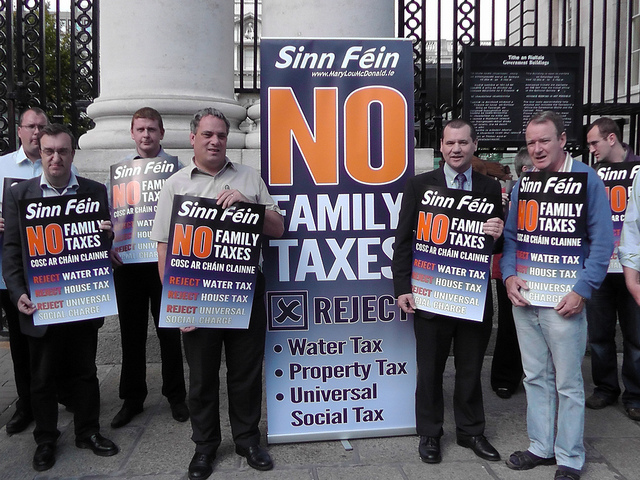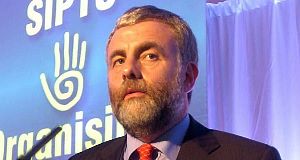1 September 2011
Sinn Féin and SIPTU lash ESRI's harsher austerity and cuts plan
SINN FÉIN and SIPTU have both hit out at today’s call by the Economic and Social Research Institute for an accelerated austerity policy that will impose more pain on a public already under pressure paying the debts of the bankers, speculators and gamblers.
Sinn Féin TD Peadar Tóibín said the ESRI was recommending a more right-wing approach to the economy than even the Government, paving the way for Finance Minister Noonan to hurt working people even more with the next Budget. He said that the ESRI has got economic forecasting “hopelessly and dangerously wrong in the years preceding this deep recession”.
SIPTU General President Jack O’Connor said the ESRI’s austerity plan “would be the worst single thing we could do”.
Peadar Tóibín said:
The Irish economy has already gone through some of the harshest austerity cuts ever seen in a western economy, leading to the crash.
Nearly half a million are unemployed, up to 50,000 a year are emigrating and hundreds of thousands of people are being forced into poverty. The economy is cut to the bone. Any further cuts will have severe and long-lasting effects.
The health, the education and the living standards of a whole generation are being severely attacked. All this is happening on the basis of an ideological bias within this government and organisations such as the ERSI. The people making these recommendations are insulated from the disastrous effects of their policy pronouncements by their high salaries.
The Government’s refusal to make the rich pay is out of step internationally and is the real problem. Progressive taxes must be marginally increased on those earning over €100,000 instead of the proliferation of flat taxes that attack the poor in society.
To get the domestic economy growing there must be a focus on stimulating and investing in the economy. The national debt of the last generation was paid for through economic growth.
The ESRI suggests that the money saved by a reduced interest rate, allowed by the EU after Greece forced renegotiation, should be used to write down the deficit faster.
This ignores the fact that no matter how quickly we write down the domestic deficit, we are still carrying a debt burden level that is crippling the state's finances because we have taken on all of the private banking debts.
Private debt must also be restructured. It cannot be paid for by strangling the economy, closing hospital services or reducing educational services.
SIPTU leader Jack O’Connor said it is incredible that “in the same week as the Central Bank reported a 26% increase in distressed mortgages over the past year and a day after the Central Statistics Office reports that the Live Register continues to rise inexorably, the ESRI is calling for intensification of the austerity programme beyond even the draconian provisions of the EU/ECB/IMF plan, which has already inflicted so much misery on our citizens”.
The head of Ireland’s largest trade union added:
Of the limited options available, intensifying austerity at this point would be the single worst thing we could do. It would further retard our anaemic growth prospects. Even the employers’ organisations are opposed to any measures beyond the requirement to reduce the deficit by 8.6% of GDP in the EU/ECB/IMF plan by next year.
It isn’t even required to appease the investors in the global financial markets who are increasingly attracted by Irish government bonds. Over the past three years, €20billion, approximately 14% of GDP, was taken out of the economy in pursuit of a flawed budgetary strategy which has suppressed growth and retarded recovery.
These measures have been inflicted on people across our society with appalling consequences for the most vulnerable. The focus now must be on jobs and growth. This is the key to recovery and it is also, incidentally, the key to building confidence in international markets.
There will be no sustainable growth without investment. In this regard, the real challenge facing the Government is how to find alternative sources of investment to offset the proposed €3.6billion reduction in Budget 2012, not making it worse as recommended by the ESRI.
Follow us on Facebook
An Phoblacht on Twitter
Uncomfortable Conversations

An initiative for dialogue
for reconciliation
— — — — — — —
Contributions from key figures in the churches, academia and wider civic society as well as senior republican figures






